Politics
Lessons From Rwanda
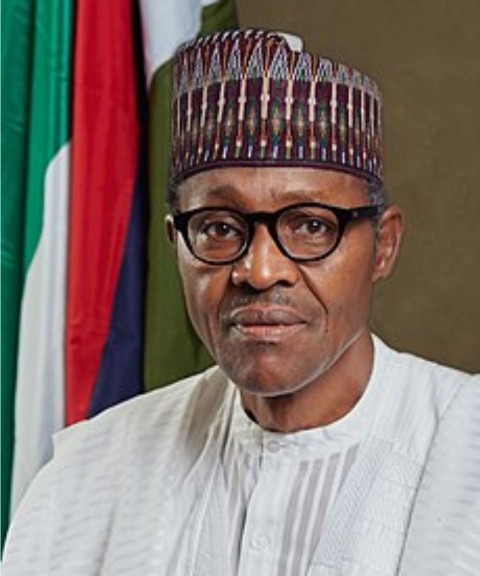
In 1994, the unwarranted and gruesome genocide unleashed on the minority Tutsi ethnic group in Rwanda sent shock waves across the globe as the end result was over 800,000 people killed in just 100 days.
Those killed included men, women and even babies in the cradles. Also an estimated 250,000 women and girls were raped with some of them infected with HIV.
How did these killings start? The Kingdom of Rwanda was a peaceful place until the advent of colonialism which saw it placed under the rule of Belgium after the first World War. The policies of the colonial Belgian governors later ensured that there was class division along ethnic lines by even issuing identity cards stating one’s ethnic affiliation and these identity cards were used in terms of employment, and admission into schools.
Consequently these absurd policies were inherited by the post independent government in 1962 and never abolished.
However the history of Rwanda has never been that peaceful as in 1959 Hutu revolution had forced about 300,000 Tutsis to flee the country. And by 1961 the King who was of Tutsi origin was sent packing, the country was declared a republic; the monarchy abolished, and a Hutu, Gregoire Kayibanda, elected as president.
Kayibanda’s presidency was shortlived as he was overthrown in 1973 by juvinal Habyarimana, who ruled till he was killed with his Burundian counterpart Cyprien Ntayamira, when the plane they were on board was shot down over kigali, which later triggerd the orgy of killings, the killing was put to an end when the Tutsi led Rwandan patriotic front which had been fighting the government took control of the capital, Kigali, on July 6 1994.
25 years after the killings how far has the country gone to mend the wounds of the past? Today in Rwanda nobody is talking about one’s ethnic background as the obsolete identify card with one’s ethnic classification or social status has been abolished.
Everybody is now a Rwandan by classification. Immediately the Rwandan patriotic front took over the reins of power it also began the process of reconciliation whereby those who took part in the killings of their neighbours and friends had to visit the survivors to apologise, for the role they played in the sordid history of the country. And for those top government and military officers the consequences for their actions were just terms and apologies.
These efforts by the government today have brought about tremendous change in the society. Also memorabila of what took place could be seen in museums in the capital Kigali and other cities with the slogan “Never again”.
For killing to take place in such a speed and the huge number of casalities, quite a number of factors were involved such as hate speeches, government support, religious leaders indifference and sometimes encouragement of one segment of the society against another and foreign power conspiracy to create chaos in the African society. France, Belgium were specifically blamed by the Kagame administration, for aiding and being indifferent to the killings the Catholic Church in Rwanda.
There was a stage when even the Canadian born UN Peace Commander had to emotionally beg for the UN and other international bodies for assistance to stem the killings but found no support, only silence until when the magnitude of the crime was revealed to the world that people started making-half-hearted statements on the genocide.
Initially, France denied complicity but just recently French President, macron has set up a high powered body to look into France’s role in the 1994 genocide. Former UN Secretary-General Boutros Boutros-Ghali said “The failure of Rwanda is 10 times greater than the failure of Yugoslavia, because in Yugoslavia the international community was interested, in Rwanda nobody was interested”.
Hate speech, discrimination and killings do not just start in a day, it has been going on over the years in many countries. In 1913, over a million Armenians were butchered by the Turkish government, with their churches desecrated. The indigenous population of Turkey, the Greeks today are not more than 5,000 in a population of about 80 million people. The second genocidal incident in modern times was the holocaust of 1939 to 1945 during the second World War instigated by Adolf Hitler, that of Cambodia under Pol Pot. But that of Rwanda was the worst as 70 of the Tutsi population was wiped out in just 100 days.
What are the lessons we, as Nigerians can learn after fighting a bitter civil war, following a similar bloody history of hate speech and genocide which saw to the death of one million Nigerians mostly from the South Eastern part of the country?
Although the Nigerian situation was better, for the past five years there has been bloodletting, killings and destruction almost on weekly basis in parts of the country.
Book Haram is still committing atrocities in the North West, with bandits holding swart in Kaduna Zamfara and Katsina and the Abuja-Kaduna highway.
According to the governor of Zamfara State, within the past five years 3,526 persons were killed by armed bandits with 500 villages destroyed, yet the country is not at war.
Hundreds of thousands of Nigerians are living in refugees’ camps in their own country with the government doing literarily nothing to stop the violence.
If the Rwanda Patriotic Front under Paul Kagame can put a stop to killings within one week of taking over power with virtually no resources at his disposal under a civil war situation, why can’t the Nigerian government with huge resources at its disposal unable to put an end to the menace of Boko Haram and armed bandits are they spirits?
For too long, the menace of armed groups have been overlooked and it begins to look suspicious that there are fifth columnist groups who want instability and another round of civil war to occur in Nigeria.
The government should take the issue of security seriously, otherwise what is seen as insignificant will one day snow ball into something more dangerous, that will affect the whole country. Killings by so-called herdsmen are still on with no serious attempts made to arrest the culprits.
If we reflect back when the issue of Boko Haram and the banditry in Zamfara started, a lot of Nigerians especially in the affected states were playing politics with it. Today some personalities can’t go to their villages even duns public holidays or weekend as their communities have been razed.
In Nigeria let the truth be told, we don’t value human life. There is no difference between the living and the dead. Our leaders don’t have empathy.
Is it today that the presidency will sit up and realise that the killings in Zamfara State had to do with the mining sector?
There is this suspicious feeling that the killings in part of Sokoto, Zamfara, Kaduna Benue parts of Adamawa Kogi and Enugu states are not herdsmen/farmers clash but a well thought out plan to eliminate the indigenous population of those area because the land there abound with precious mineral resources.
Today these suspicions have been partly proven by the recent statement by the president that all foreigners in all mining sites in Zamfara should quit the area and mining activities be suspended.
So government knew all along that the killings in these areas were economically motivated and had kept silence. What a shame!
Tonye Ikiroma-Owiye
Politics
PDP Crisis: BoT Urges Immediate Swearing-In Of Ude-Okoye As National Secretary
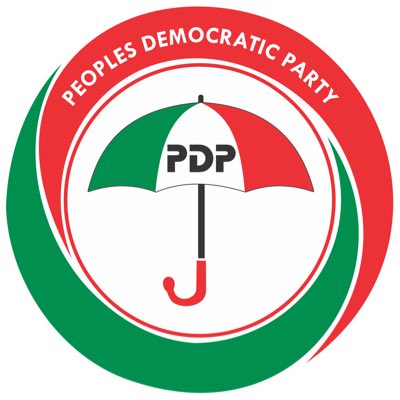
The Board of Trustees (BoT) of the Peoples Democratic Party (PDP) has officially transmitted the resolution of its emergency meeting held in Abuja on Wednesday to the party’s National Working Committee (NWC).
It also attached the communique of the meeting, the findings of the Saminu Turaki SAN-led fact-finding committee as well as copies of the Court Judgement/ orders with an instruction to the NWC to immediately swear in Sunday Ude-Okoye as substantive National Secretary.
This was sequel last Wednesday’s emergency meeting held at the Transcorp Hilton Hotel, Abuja.
This was contained in a memo from the BoT to the NWC, yesterday, barely 24 hours after the meeting.
The memo read in part, “The attention of the National Working Committee (NWC) is hereby drawn to the attached Legal Opinion of the BOT Committee led by Dr. Taninu Kabiru Turaki, SAN; and the Communique issued at the end of the Emergency BOT Meeting affirming Rt. Hon. S.K.E. Udeh Okoye as the substantive National Secretary of our Party.
“NWC is hereby invited to please. study the report and its recommendation for immediate implementation.”
The documents were stamped and received by the Office of the Deputy National Chairman (North), Amb. Umar Damagum’s office before he became Acting National Chairman.
An Enugu High Court had in a ruling affirmed Ude-Okoye’s appointment as National Secretary, and the decision was subsequently upheld on appeal.
However, Senator Samuel Anyanwu told a national daily that, “With all due respect, the BoT’s position is advisory.
“I have a valid stay of execution from the Court of Appeal. The substantive matter is still before the Supreme Court, the PDP as a law-abiding party should wait for the final decision of court and not rush into taking decisions that would become counterproductive.”
Politics
Reps Seek Life Imprisonment For Fake Drug Producers, Importers
The House of Representatives has urged the Attorney General of the Federation to propose harsher sanctions, including life imprisonment, for producers and importers of fake drugs into the country.
The resolution followed the adoption of a motion of urgent public importance, sponsored by an All Progressives Congress lawmaker, Tolani Shagaya, and read on the floor during yesterday’s plenary.
Highlighting the importance of the motion, Shagaya expressed concern over the alarming increase in the production, importation, and distribution of fake and substandard goods, drugs, food, and beverages across Nigeria.
According to him, this development poses significant threats to public health, national security, and the economic stability of the nation.
He added that the World Health Organisation (WHO) and the National Agency for Food and Drug Administration and Control (NAFDAC) have repeatedly warned that Nigeria is one of the most affected countries in the world by counterfeit medicines, contributing to thousands of avoidable deaths annually.
He said, “The House is aware that NAFDAC recently seized counterfeit food and pharmaceutical products worth over ?5 billion in a raid at the Cemetery Market in Aba, Abia State, highlighting the widespread nature of this menace.”
“The House is concerned that Nigeria suffers economic losses of approximately ?15 trillion annually due to counterfeit and substandard goods, as reported by the Standards Organization of Nigeria. The unchecked proliferation of fake products not only jeopardises consumer safety but also discourages genuine investment in the food and pharmaceutical industries.”
“The House is further concerned that despite existing regulations, weak enforcement mechanisms, corruption, and the absence of stringent penalties for offenders have emboldened perpetrators to continue endangering public health.”
“We recognise that the current legal framework does not provide sufficient deterrence, as offenders often return to the illicit trade due to lenient fines and bailable sentences, allowing them to operate with impunity.”
He further added that a national state of emergency is necessary to intensify enforcement efforts, strengthen regulatory institutions, and impose stricter sanctions on perpetrators.
Following overwhelming support for the motion by lawmakers, the House urged the Attorney General of the Federation to propose amendments to existing laws with a view to imposing stricter penalties.
These include, “life imprisonment for those involved in the production and importation of fake drugs and significant fines for businesses found guilty of dealing in counterfeit goods.”
The House also urged the Federal Government to strengthen the capacity of regulatory agencies, particularly NAFDAC, Standard Organisation of Nigeria, and the Nigerian Customs Service, by providing adequate funding, modern equipment, and advanced technology for effective surveillance, detection, and enforcement.
It further urged the Federal Government to establish a special task force comprising security agencies, regulatory bodies, and the judiciary to fast-track investigations and prosecutions of individuals and businesses involved in counterfeiting.
The House also directed its Committees on Health, Commerce, and Industry to conduct a comprehensive probe into the prevalence of counterfeit products and propose legislative measures to address regulatory gaps.
Politics
How Akande Lied Against Me Over Bola Ige’s Case – Ladoja
In a recent interview, Chief Akande also said Senator Ladoja entered a no case submission for the suspects accused of assassinating the ex-Attorney General of the Federation and Minister of Justice.
But the ex-governor has denied the allegation, saying old age has probably affected the memory of the former Osun State Governor to remember what happened during the period.
Senator Ladoja wondered why Chief Akande, who said he knew many things about the assassination that he would not disclose, did not tell the public what exactly surrounded the killing of the former AGF on December 23, 2001.
Senator Ladoja, next in the hierarchy to the Olubadan of Ibadan, said this when speaking with reporters in his Bodija residence in Ibadan.
Speaking in an interview with Edmund Obilo, Chief Akande suggested that Senator Ladoja might have important information about late Chief Ige’s killing.
He alleged that Chief Ige was killed by the government and described his death as a “state murder” — but never affirmed a specific person who committed the crime.
Chief Akande claimed that Senator Ladoja withdrew a case related to the murder that had initially been pursued by his predecessor, former Governor Lam Adesina.
“I was the chief security officer of Osun State at the time, not Oyo State. Lam Adesina was the chief security officer of Oyo State and he went to court and the governor that took over from him, Ladoja, withdrew the case from court. He might be able to tell you more, he might know more than I do know,” Chief Akande said.
“There are many things that die with people. I know Lam Adesina went to court over the matter, and I also know his successor, (Rashidi) Ladoja, withdrew the case. Ask Ladoja; he would know more about Bola Ige’s death”, he added.
The All Progressives Congress (APC) chieftain also expressed regret that ex-governor Adesina had confided in him about certain details he could no longer disclose.
Chief Akande noted that key figures, including the former Oyo state governor, who could have shed more light on the case, had passed away.
“Because there are many things you don’t want to tell the public. I don’t want to tell anybody. Now Bola Ige is dead, and Lam Adesina too is dead, so who will be my witness? Nobody,” he added.
Addressing journalists at his residence in Ibadan, Senator Ladoja described Chief Akande’s claims as false.
He said that the case was pursued up to the Supreme Court during his tenure, and denied ever having withdrawn any charges.
“I didn’t withdraw the case; my government didn’t withdraw any case. The case was even prosecuted till apex court, Chief Akande lied against me. This is not the first time people said he lied; someone like Baba Adebanjo even said he lied in his book.
“We are not all happy as a result of Chief Bola Ige’s death, and we are all concerned about his death. I was very close to Chief Bola Ige while alive”, he said.
In 2016, former President Muhammadu Buhari ordered that the investigation into the murder be reopened, but there has been little progress since.
-
Niger Delta4 days ago
NACAT Inaugurates South-South Office In A’Ibom Against Corruption
-
Sports4 days ago
AFCON: Eguavoen, Emenike predict S’ Eagles’ chances
-
Rivers2 days ago
Appreciate God, Elder Statesman Urges Nigerians
-
Business4 days ago
Bayelsa Recommits To Infrastructure, Sectoral Dev … Rakes In N227.185b From IGR
-
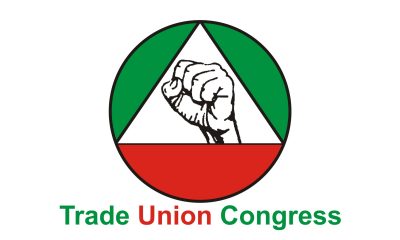
 Featured2 days ago
Featured2 days agoTUC Opposes FG’s Proposed Toll Gate On Federal Roads, Rejects Electricity Tariff Hike
-
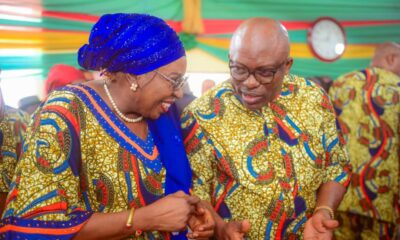
 News2 days ago
News2 days agoBe Consoled, God Who Gives, Also Takes, Fubara Tells Principal Secretary
-
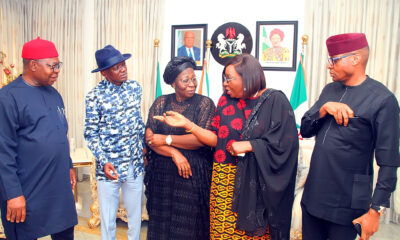
 News4 days ago
News4 days agoS’South Deputy Govs Pay Condolence Visit To A’Ibom Colleague
-

 Niger Delta4 days ago
Niger Delta4 days agoHYPREP Presents Scholarship Grants To 300 Ogoni Postgraduate Students

